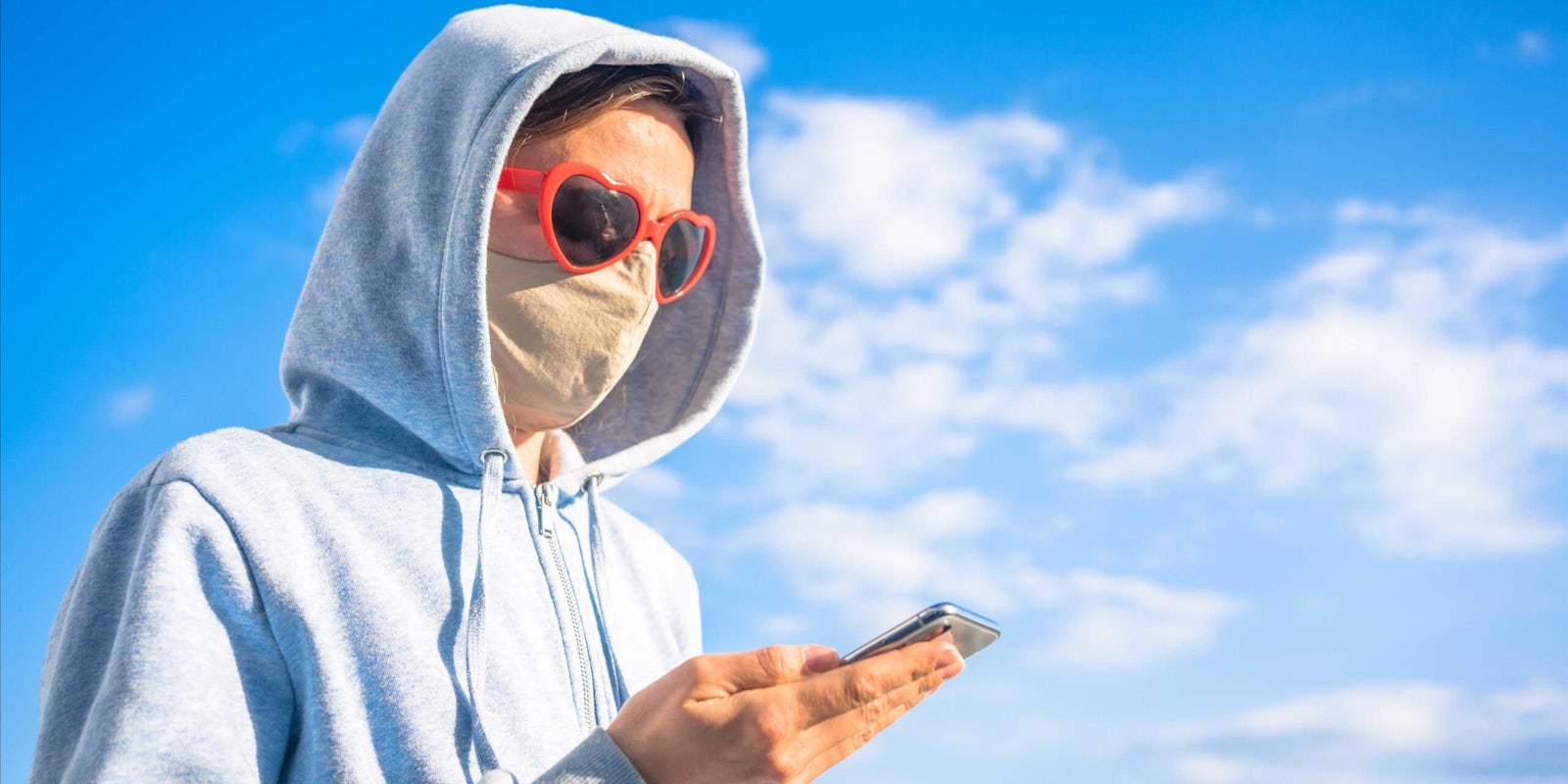Face-mask selfies have become somewhat popular during the coronavirus pandemic, but as a new report points out, those selfies could also be helping facial recognition algorithms.
CNET reports that thousands of face-mask selfies posted publicly on Instagram have been compiled in public data sets that researchers are using to train facial recognition algorithms.
With masks covering a large portion of parts of the face that are normally scanned with the technology, algorithms would need to be fed images of people wearing the masks to update and learn new scans.
There have already been some changes, like masks that have your face printed on it to allow you to unlock phones.
CORONAVIRUS PANDEMIC
- The Daily Dot is committed to filtering the noise every day as COVID-19 seizes the internet’s attention worldwide. We bring you stories on everything related to the viral pandemic, from the state response to social media fallout, and all the technical flubs, emerging social trends, and disinformation in between. READ MORE ->
A “COVID19 Mask Image Dataset” was posted on Github in April which contained more than 1,000 public images from Instagram, according to the report. The database was then analyzed by AI startup Workaround to help algorithms label them depending on whether they were wearing masks.
Workaround’s CEO Wafaa Arbash told the news outlet the people in the photos did not know they were part of the data set and were found usuing hashtags about masks.
Arbash said they were not making money off the data set and the intention was to “help any data science or machine learning engineers who are working to fix this issue and help with public safety.”
However, Facebook—which owns Instagram—told CNET it was investigating the collection of the images because it doesn’t allow third parties to collect photos.
Social media photos being used as part of facial recognition software drew a significant amount of attention earlier this year after it was revealed Clearview AI, a facial recognition startup, scraped images from major sites and put them in a database without people’s knowledge.
The app drew a heap of scrutiny as digital rights and privacy groups have come out against the use of facial recognition technology, particularly among government and law enforcement.
You can read all of the CNET report here.
READ MORE:


